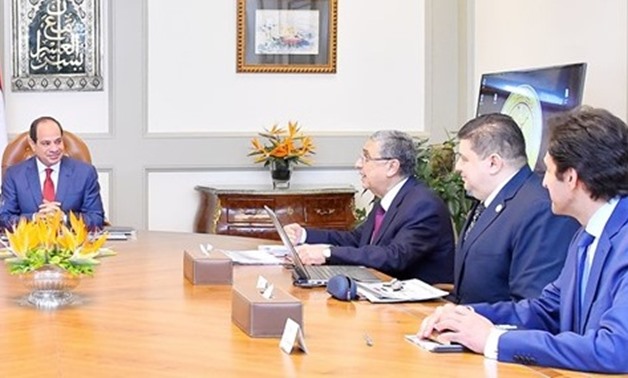
In a meeting with the Prime Minister Mostafa Madbouly, Minister of Electricity Mohamed Shaker, and Chairman of the Nuclear Power Plants Authority Amgad al-Wakeel, Sisi stressed the necessity to ensure the highest safety standards in all stages of construc
CAIRO – 9 September 2019: President Abdel Fattah al-Sisi on Sunday has reviewed the latest developments of the Dabaa nuclear plant set to be constructed in Egypt's Matrouh on the Mediterranean coast.
Egypt's first nuclear plant, which is planned to be constructed by Moscow-based Rosatom State Atomic Energy Corporation is planned to be similar to Russia’s Leningrad Nuclear Power Plant having an installed capacity of 4,200 MWe and supplying 50 percent of the energy consumed in Saint Petersburg and the Leningrad Region.
In a meeting with the Prime Minister Mostafa Madbouly, Minister of Electricity Mohamed Shaker, and Chairman of the Nuclear Power Plants Authority Amgad al-Wakeel, Sisi stressed the necessity to ensure the highest safety standards in all stages of construction of the plant.
Sisi highlighted the importance of nuclear energy that is planned to contribute to the generation of electricity in Egypt in the future.
In 2014, Egypt and Russia announced their cooperation in the nuclear power field. On November 19, 2015, an agreement was finally signed between Cairo and Moscow that allows Russia to build a nuclear power plant in the city of Dabaa, with Russia extending a $25 billion loan to Egypt to cover the cost of construction. The loan will cover 85 percent of the plant, with Egypt funding the remaining 15 percent.
According to the deal, Rosatom will finance and construct four third-generation reactors, with a capacity of 1,200 megawatts (MW) each, for a total of 4,800 MW. The plant will be built on approximately 12,000 feddans and is expected to create over 50,000 job opportunities.
Nuclear energy is part of the government’s plan to diversify its energy sources to prevent any future crisis resulting from shortages in electricity.

Comments
Leave a Comment